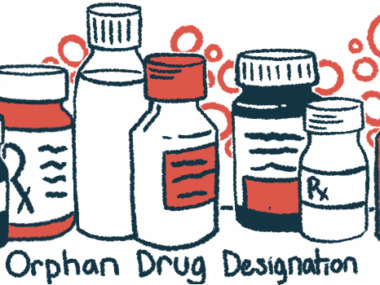Utidelone now FDA orphan drug after promising cancer trial results
Treatment works to augment chemotherapy effects, is less prone to resistance
Written by |

Biostar Pharma’s experimental therapy utidelone has been granted orphan drug status for pancreatic cancer by the U.S. Food and Drug Administration (FDA).
The designation is intended to incentivize the development of treatments for rare diseases that affect fewer than 200,000 people in the U.S. This status provides Biostar with regulatory benefits like tax breaks, fee waivers, and the potential for seven years of market exclusivity if utidelone is ultimately approved.
A Phase 2 trial (NCT05795920) is testing the medication plus the chemotherapy gemcitabine in people with pancreatic cancer that cannot be removed with surgery. Most participants in early analyses have experienced stabilization or shrinkage of their tumors, according to a company press release.
Utidelone a potential new treatment
Biostar is also testing the therapy for other forms of cancer, and it has previously received FDA orphan drug status for other potential indications.
Pancreatic cancer is a rare but aggressive cancer that begins in the pancreas, a digestive organ. From there, it can quickly spread, or metastasize, to other parts of the body. Genetic mutations in cancerous pancreatic cells cause them to divide frequently, cloning themselves and resulting in uncontrolled tumor growth.
Often, these tumors do not cause notable symptoms during early phases of the disease. Once they spread to other areas of the digestive system, stomach pain, weight loss, and other symptoms may develop.
As a result of the late onset of symptoms and rapid progression, pancreatic cancer can be challenging to diagnose and treat. If possible, surgeons may remove the tumor entirely, but this often is not possible by the time the cancer is diagnosed. Combinations of chemotherapy medications, often including gemcitabine, are a mainstay of treatment in cases that are not operable.
Utidelone works to augment the effects of gemcitabine by interfering with the process of cell division to undermine excess growth. Structures called microtubules help start and regulate division, separate chromosomes so that each divided cell has a complete set, and form the structural backbone of new cells. Utidelone inhibits microtubules, potentially disrupting these roles and reducing cell division.
This mechanism of action is similar to a class of medications called taxanes, which also inhibit microtubules. The taxane nab-paclitaxel is sometimes combined with gemcitabine for pancreatic cancer.
However, utidelone poses several advantages over taxanes, according to Biostar. Its safety profile may be better, resulting in less toxicity toward non-cancerous cells. It may also be useful for cases in which tumors become resistant to multiple medications, because it is less prone to triggering drug resistance.
Phase 2 trial results
In the ongoing Phase 2 trial, patients with late-stage pancreatic cancer receive utidelone plus gemcitabine. Each round of treatment lasts three weeks, with into-the-vein infusions of utidelone on the first five days and chemotherapy on days one and eight. Participants receive six to eight cycles of the therapy.
Biostar investigators presented results from the first 11 participants last year. Three of these individuals showed a partial response, meaning their tumors decreased in size but did not entirely disappear. An additional five achieved disease stability with no further tumor growth. Overall, about 27% responded to treatment, and nearly 73% had their cancer kept under control.
Participants lived for an average of 9.5 months after starting the therapy.
These results are also supported by findings in other types of cancer, Biostar noted. In a Phase 3 trial (NCT02253459) in individuals with heavily pretreated, metastatic breast cancer, participants given utidelone plus chemotherapy survived significantly longer than those who received chemotherapy alone. Based on this, Chinese regulators approved the combination therapy for some metastatic breast cancer patients.
While the FDA has not approved utidelone for any indication, it has granted the therapy orphan drug status also for gastric cancer and metastatic breast cancer.




